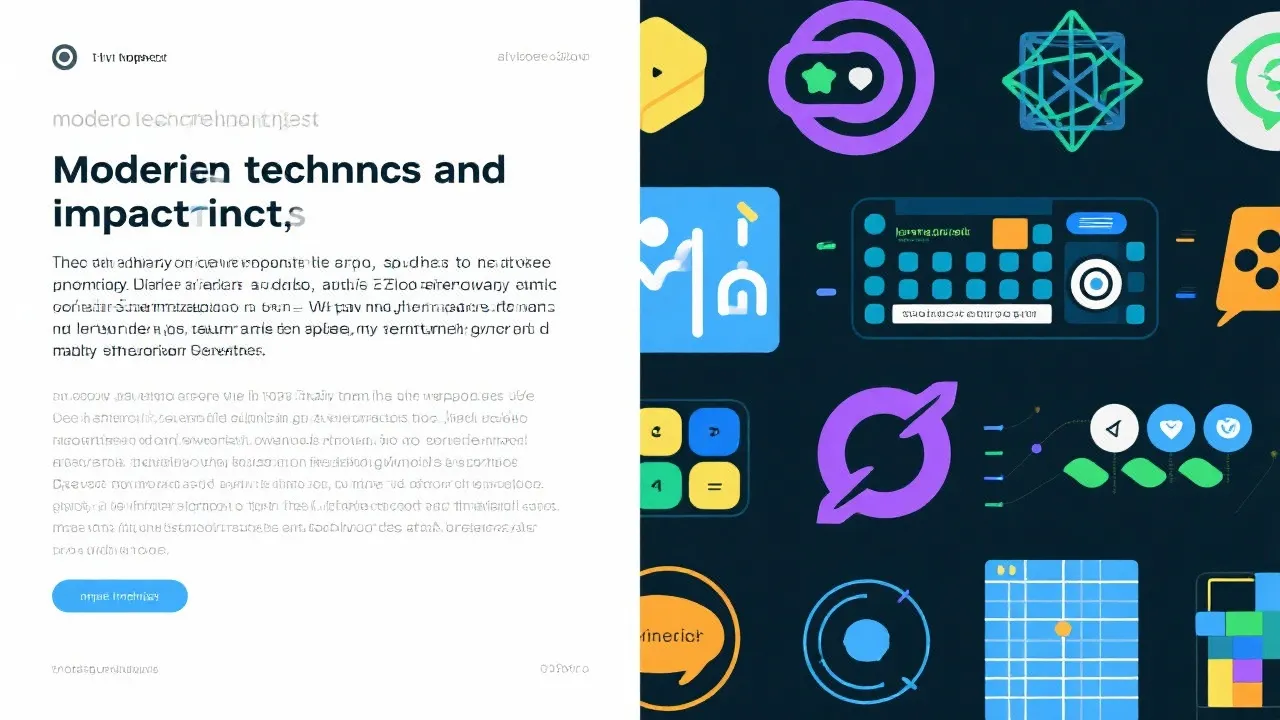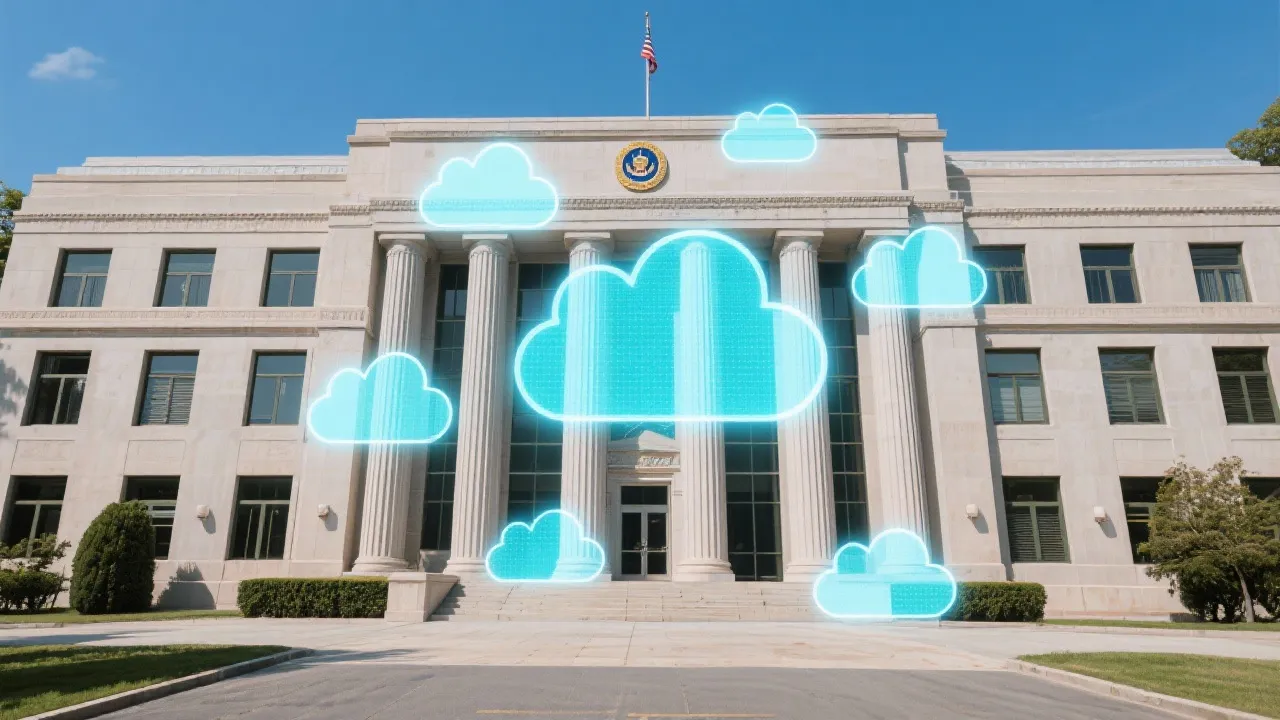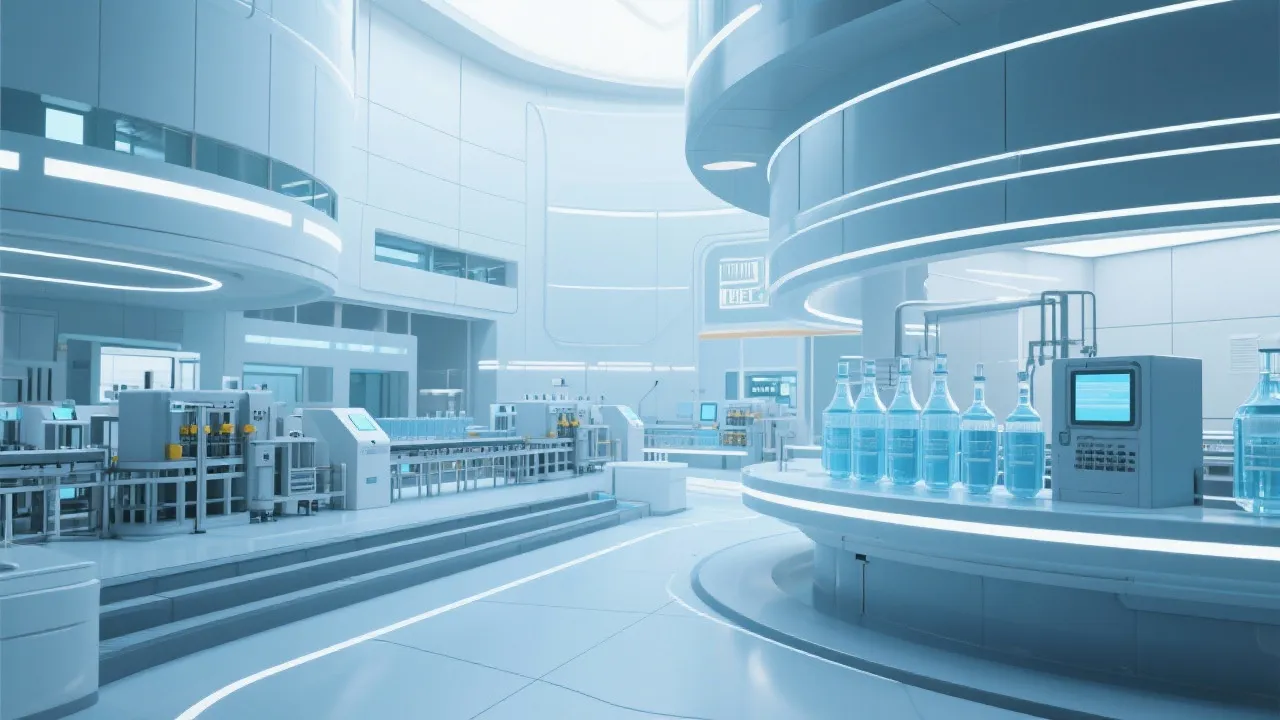Navigating Modern Technology
Discover how today's cutting-edge technologies are transforming industries and daily life. We'll explore key areas where advancements are making a significant impact, driving innovation, and shaping the future.

Introduction to Modern Technologies
Explore how innovations in technology are reshaping our world, impacting diverse sectors from entertainment to education. In recent years, the pace of technological advancement has accelerated at an unprecedented rate, changing the way we live, work, and interact with one another. Modern technologies like artificial intelligence, machine learning, and the Internet of Things (IoT) are not just buzzwords; they are the driving forces behind transformations in many industries. This article delves into various sectors where these technologies are making a significant impact and discusses the implications of rapid technological evolution on both individuals and society at large.
| Sector | Innovations |
|---|---|
| Entertainment | Streaming services and virtual reality revolutionizing media consumption. The rise of platforms like Netflix, Hulu, and Disney+ has transformed viewing habits. Audiences are no longer confined to scheduled programming but can consume content on-demand, which has led to an increase in binge-watching culture. |
| Finance | Cryptocurrencies and blockchain paving new paths for financial transactions. Bitcoin and Ethereum have introduced the concept of decentralized finance (DeFi), enabling peer-to-peer transactions without intermediaries. This shift challenges traditional banking systems and raises questions about security, regulation, and economic inequality. |
| Higher Education | Online courses and digital learning environments expanding access to education. The COVID-19 pandemic accelerated the adoption of online education, pushing universities and colleges to shift their classes to digital formats. Platforms like Coursera, Udacity, and edX have allowed learners worldwide to access high-quality courses from prestigious institutions, breaking geographical and financial barriers. |
| Healthcare | Telemedicine and wearable technology enhancing patient care and engagement. This innovation allows healthcare providers to offer remote consultations, track patient vitals through wearable devices, and engage in real-time health monitoring, ultimately improving health outcomes and access to care. |
| Transportation | Electric vehicles and autonomous driving technologies revolutionizing mobility solutions. Companies like Tesla are pioneering electric vehicles (EVs) that provide a sustainable alternative to traditional combustion engines. Meanwhile, advancements in artificial intelligence are enabling the development of self-driving cars, which promise to reduce traffic accidents and improve urban transportation efficiency. |
| Retail | E-commerce and augmented reality changing the shopping experience. Retailers are increasingly using augmented reality (AR) to enhance customer experiences, allowing consumers to visualize products in their own spaces before purchasing. Meanwhile, the growth of e-commerce giants like Amazon has fundamentally altered consumer behavior and expectations regarding convenience and speed in shopping. |
| Manufacturing | Industry 4.0 and smart manufacturing streamlining production processes. The integration of IoT, artificial intelligence, and robotics into manufacturing has led to increased efficiency and reduced costs. Smart factories are now able to monitor production in real-time, optimize resource usage, and respond quickly to changing demands. |
Key Policies
Understand the importance of privacy and terms of use in navigating digital environments. As technology continues to evolve, so do the discussions around privacy, security, and ethical use of data. Companies and organizations are increasingly faced with the challenge of ensuring the protection of personal information while still allowing for the innovation necessary to provide superior services. The implementation of policies such as the General Data Protection Regulation (GDPR) in Europe has set a high standard for data protection that many countries are now looking to emulate. The need for robust privacy policies is driven by several factors, including regulatory requirements, consumer trust, and the ethical implications of data collection and usage.
Moreover, individuals must also take personal responsibility for their digital footprints. With technology making it easier to share more about ourselves, understanding the implications of our online behavior becomes increasingly important. It is essential for users to familiarize themselves with the terms of use and privacy policies of the platforms they engage with, as these documents outline how their data is collected, used, and shared. Failure to understand these terms can lead to unexpected consequences, such as loss of privacy or unauthorized data sharing.
The Role of Artificial Intelligence
Artificial intelligence (AI) is transforming numerous fields by enabling machines to learn from data and perform tasks that typically require human intelligence. In sectors such as healthcare, AI is being used for predictive analytics, helping medical professionals identify potential health risks in patients before they become critical issues. Algorithms analyze patient data and identify patterns that suggest a higher probability of conditions like diabetes or heart disease. This advancement not only aids healthcare providers in making informed decisions but also empowers patients to take proactive measures regarding their health.
In the realm of customer service, AI-powered chatbots are becoming increasingly common. These tools provide immediate assistance to users, improving the overall customer experience. Chatbots can handle multiple inquiries simultaneously, offering support 24/7, which is particularly beneficial for businesses that operate globally. By utilizing natural language processing (NLP), chatbots can understand customer queries and provide relevant responses, reducing the need for human intervention.
Furthermore, AI contributes significantly to enhancing recruitment processes. Human resources departments are leveraging AI algorithms to screen resumes and analyze candidates more effectively. By evaluating vast amounts of data faster than a human recruiter could, these systems can identify the most suitable candidates based on specific criteria, thereby streamlining hiring processes and improving the quality of new hires.
Cybersecurity Concerns in the Digital Age
With the advent of modern technologies, cybersecurity has become a crucial concern for individuals and organizations alike. Cyber threats are evolving in sophistication, making it imperative for companies to implement stringent cybersecurity policies. Data breaches, which can lead to stealing sensitive information, have become all too common, leading to significant financial losses and damage to reputation.
To combat these threats, businesses are adopting multi-layered security measures that include firewalls, encryption, and multi-factor authentication. Employees are also being trained to recognize phishing attempts and other forms of social engineering that cybercriminals use to gain access to data and systems. The integration of advanced technologies such as machine learning is aiding in detecting anomalies in network traffic that could signal a potential breach, allowing for quicker responses to threats.
Ethical Considerations in Technology
As technology plays an increasingly central role in our lives, ethical considerations have gained prominence. Issues like data privacy, algorithmic bias, and the impacts of automation are at the forefront of discussions surrounding modern technologies. For instance, algorithms used in decision-making can reflect biases present in the data they are trained on, leading to discriminatory outcomes in areas such as hiring, lending, and law enforcement.
To address these ethical dilemmas, there is a growing push for transparency in technology deployment. Consumers and advocacy groups expect organizations to not only disclose the nature of their data collection practices but also ensure that their algorithms are fair and unbiased. This movement has inspired several companies to conduct regular audits and assessments of their algorithms, fostering accountability and trust with their customers.
The Future of Work and Remote Operations
The rise of digital technologies has transformed the traditional workplace. Remote work has become a viable option for various industries, facilitated by tools that allow for seamless communication and collaboration. Platforms such as Zoom, Microsoft Teams, and Slack enable teams to work together effectively, regardless of their physical locations. This shift has prompted organizations to rethink their operational models, often leading to more flexible work schedules and a better work-life balance for employees.
The future of work also brings about new challenges, such as the digital divide, where not everyone has equal access to high-speed internet or cutting-edge devices. Bridging this gap is necessary to ensure that the benefits of technology are accessible to all. Training and reskilling initiatives are essential in preparing the workforce for the demands of the new digital economy. As the job market evolves, continuous learning will become crucial for employees to remain competitive and relevant.
Conclusion
In conclusion, the landscape of modern technology is continually evolving, bringing forth a multitude of innovations that reshape various sectors. While the benefits of these advancements are immense, they also come with challenges that require careful navigation. As we embrace these changes, a collaborative approach involving governments, businesses, and individuals will be essential in ensuring that technological growth translates into positive outcomes for society. By prioritizing ethical considerations, cybersecurity, and inclusivity, we can harness the power of modern technologies to create a more equitable and sustainable future.




